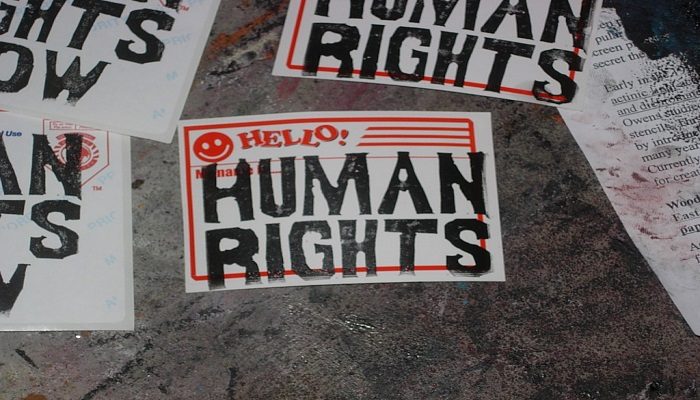
Debating Human Rights
By: Chong, Daniel P.L.
Boulder, Colorado: Lynne Tienner Publishers, 2014.
Chong’s work presents an excellent, concise summary of today’s most debated human rights topics. From promoting human rights in China, to the United States’ decision not to join the International Criminal Court (ICC), to potential limits of freedom of speech, Chong’s book is a useful primer on contemporary human rights and easily digestible to readers even outside the human rights field. While the topics debated are somewhat disparate across chapters, the common theme that runs throughout the book is that the issues he presents, such as female circumcision, remain deeply contested in the international community. These controversial global topics remind the reader of the daunting task to define ‘universal human rights’ for policy makers, in treaty negotiations, and in international law.
Each chapter follows the same format: first Chong presents a brief overview of the issue, such as the U.S.’ refusal to join the ICC. Second, he puts forth an argument in support of the concept, such as “the U.S. should join the ICC” (p 84) and references multiple sources to support this position. Lastly, he presents an argument against the issue, such as (in another chapter), “freedom of speech can be legitimately restricted” (p 133). He presents the most compelling, cited arguments on each side of the issue. Impressively, Chong remains largely objective on each topic; a rare task for scholars of human rights whose opinions and political leanings are often all too apparent.
There are two main weaknesses of this book. First, at times it remains too surface level or basic in the arguments of each case. In the opening acknowledgments, Chong thanks many of his undergraduate students’ contributions to this book, clueing the reader to the potential level of the discussion. For policy makers of human rights, it may be too elementary, but selections from this book would be fitting for an undergraduate or even general graduate level course of international relations.
Second, the book is guilty of being too American-centric. The U.S. is either the central player or an important indirect actor in each of the cases. This is unfortunate, as the very concept of human rights is often disparaged as too U.S./Western focused. In places such as the Middle East or Latin America, local populations often criticize the U.S. as defining human rights according to its own cultural values and historical context. Leaders in the Global South sometimes criticize the international human rights discourse as neo-colonialism and Western governments imposing foreign values. Therefore, it would have been refreshing for Chong to analyze a case completely outside the Western/U.S. context, such as local activists calling for the right to clean water and air in India or China.
Similarly, Chong has a real missed opportunity in the chapter on “How can Western states promote human rights in China?” (p 39) The discussion focuses on Hillary Clinton and U.S.-Sino relations. Chong does not adequately recognize what other Western States have done and the differences in human rights diplomacy. Scandinavian diplomats, for example, take unique tactics in human rights diplomacy. Not tied to the same military or economic agreements as large states, Scandinavian countries are able to more creatively and freely raise human rights issues in places such as China and Saudi Arabia. It would have been useful to recognize other countries leadership, aside from the U.S., in the human rights realm to further this debate.
While remaining American centric, the chapter that debates freedom of speech insightfully uses the U.S. as a case study, where freedom of speech is taken to its limit. Utilizing the inflammatory statements of members from the Westboro Baptist Church, who are known for protesting funerals of LGBT (Lesbian, Gay, Bisexual, Transgender) soldiers with signs that read “God Hates fags” (p131), Chong presents one of the most compelling discussions in the book. He explores the opaque distinction in certain cases between hate speech and a hate crime, where the former is legal and the latter is not. Freedom of speech is a cornerstone to liberal democracies. For many Americans this is one of the most fundamental rights. And yet, reading the passages of the torment experienced by the family members of fallen soldiers, subjected to protests by the Westboro Baptist Church, leaves the reader with a deep appreciation of the complexities of legislating and enforcing freedom of expression in a religiously diverse democracy.
In this book, Chong presents contemporary debates about contested human rights issues relevant for today’s affairs. These issues will inevitably shift as time passes; the war on terrorism will be replaced by another, a women’s right to choose may become a universal human right, and the U.S. may join the ICC. These issues will be replaced with other discussions critical in the future such as the right to clean air, water and land. In the meantime, Chong’s snapshot of contemporary human rights debates provides an excellent springboard into the current discourse. One of the key successes of this book is addressing the complexities of the universal applicability of human rights. I recommend this book for classrooms and a layman’s understanding of the current human rights debates.
Further Reading on E-International Relations
- Review – Evidence for Hope: Making Human Rights Work in the 21st Century
- Review – Not Enough: Human Rights in an Unequal World
- Review – Rights as Weapons: Instruments of Conflict, Tools of Power
- Review – Reconstructing Human Rights
- Review – Debating Humanitarian Intervention: Should We Try to Save Strangers?
- Review – The Rise and Fall of Peace on Earth